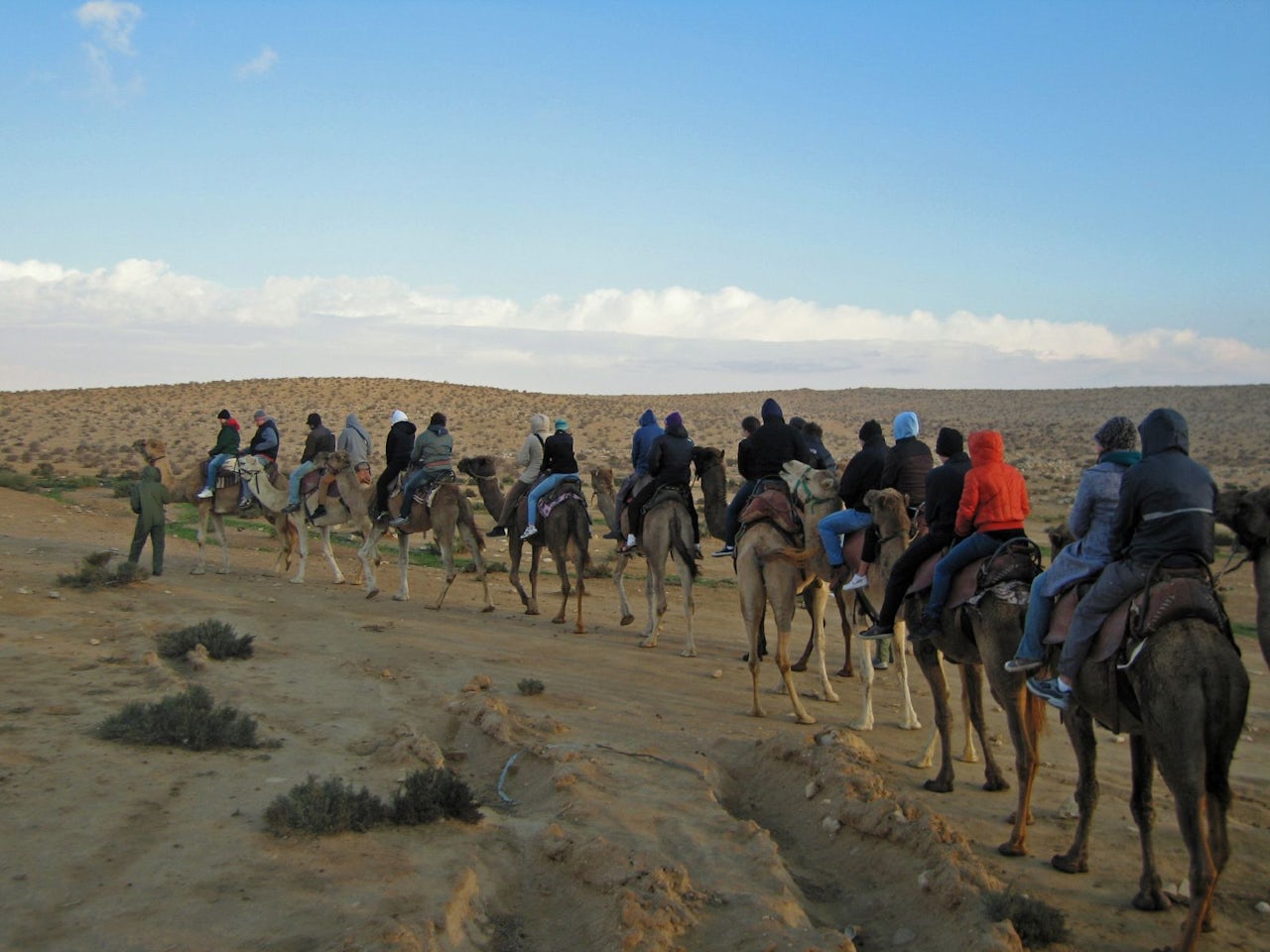Five Americans on a Birthright trip to Israel left the excursion last week after tour guides repeatedly dismissed their questions about the Palestinian perspective on the region. A Facebook Live video shows a Birthright tour guide cutting off one attendee, PhD student Bethany Zaiman, as she said that she had “not been able to” engage with the Palestinian point of view during the 10-day trip. “You are trying to impose your opinions on the entire bus […] You cannot be a tyrant on this bus, not when I’m here,” the guide said after taking the microphone from her.
Birthright, which was founded in 1999 by Israeli politician Yosse Beilin and American and Canadian investors Michael Steinhardt and Charles Bronfman to send young people of Jewish heritage on a free trip to Israel, has long faced criticism for telling a one-sided view of Israeli history, but this week’s walk out is the first of its kind.
Zaiman, a Ph.D student in Washington, D.C. who grew up in a household that observed Jewish and Christian traditions, told The Outline she had heard the program doesn’t incorporate the Palestinian perspective before attending Birthright. “I have had reservations for a long time,” she said. But she hoped the trip would provide a space to discuss the Israeli-Palestine conflict with others in the Jewish community. She noted, “I think it’s really important to engage our own communities on some of these issues.”
Though they hadn’t known each other in advance, Zaiman and the four others who walked off — Danielle Raskin, Sophie Lasoff, and Katie Fenster, and one traveler who chose not to disclose her name — gravitated to each other after guides ignored their questions. Zaiman said that guides shook off questions about the recent deaths in Gaza with the false claim that “anyone who has been harmed was a terrorist,” while the topic of Israel’s separation wall – which the group drove by multiple times — was entirely ignored.
“We were shut down consistently,” Zaiman said. “It became clear pretty quickly on the trip that we all have pretty similar political groundings.” After a few days, they started planning their walk out.
Zaiman describes the scene after they left the trip as chaotic. “The staff was pretty angry,” said, while “many of the participants seemed disappointed, distressed, perhaps a bit confused.”
Before going on Birthright, Zaiman had attended events for IfNotNow, a Jewish organization with chapters in 14 cities and on more than a dozen college campuses that seeks to “end American Jewish support for the occupation” of Palestinian land. The group, which takes its name from a quote from the rabbi Hillel the Elder (“If not now, when?”), has been especially critical of Birthright for “hid[ing] the truth about the Occupation.” Last month, as Birthright travelers departed from the John F. Kennedy Airport in New York, IfNotNow activists passed out literature about the occupation at check in.
“There are a lot of people who asked questions [...] and have been shut down in the ways these people have experienced,” Alyssa Rubin, a Northeastern University graduate who helps with organizing across college campuses for IfNotNow, told The Outline. But “this is the first time as far as I know of people actually walking off the trip because of the experience that they had.”
Since its founding, Birthright has sent roughly 650,000 young Jewish people from 37 countries to Israel. Each group has about 40 students. The Israeli government provides a large share of the program’s funding, and as does Sheldon Adelson, a major Republican donor who offered to pay for a U.S. embassy in Jerusalem. (Previously, the embassy was in Tel Aviv because Jerusalem is a religious site claimed by both Palestine and Israel.) Last year, Birthright reported receiving $94 million in donations.
“It feels very manipulative,” Rubin said of the program. “Birthright knows that if young Jews were to learn about the horrors of occupation, they would feel compelled to do something about it.”
Since she was a kid, Rubin assumed she would go on the trip at some point — it gave her a connection to a larger Jewish community that she struggled to access in her mostly non-Jewish hometown. “It was always an inevitability,” she told The Outline. “It was always, ‘when are you going to go on Birthright?’”
When she finally went in the winter of 2013, she was disappointed. Discussions focused on Israeli soldiers, the Holocaust, and Israel’s victory in the 1967 Six-Day War. Attendees learned nothing of the estimated 71,666 Palestinians who live in the West Bank without access to running water or the land, air, and sea blockade of Gaza.
“I remember asking my leader, ‘Are we going to talk about the occupation at all?’” He shot her down. “I was really shaken by that,” she said. “How can we be thinking about our own trauma and our experiences as Jews and not be grappling with what we’re doing to Palestinians?”
The purpose of IfNotNow is not to stop Jewish kids from going on their Birthright trips, Rubin said. She doesn’t want to deprive other young Jewish people of that connection to Judaism and to the Jewish community. Rather, she criticized Birthright itself for failing to engage with Palestinian narratives about the region’s political situation.
Yet Birthright remains steadfast in its approach. In response to the walk out, Birthright founder Beilin told Haaretz that he was unfazed. “I did not invent this idea to introduce young Jews to the Middle East conflict,” he said, noting that skepticism of the program is nothing new. Meanwhile, the Birthright Twitter account has apparently started blocking people who tweeted criticisms of the program, including IfNotNow member Yonah Lieberman.
Zaiman told The Outline that she isn’t impressed with Birthright’s response. “It’s your responsibility to educate young people about Israel,” she said. “You can’t just pick and choose the parts of Israel you want to talk about.”
